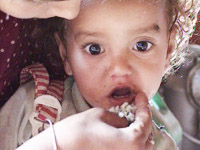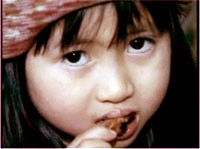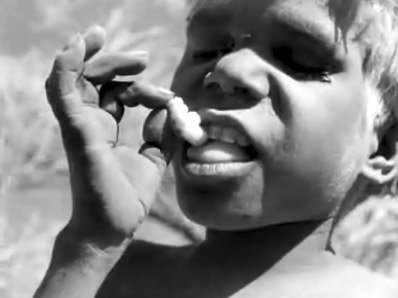|
Anthropology in the News
|
|
|||||||||||||||||||||||||||||||
 "Palermo, Sicily Italy |
 A Fistfull of Rice Nepal |
 Claire Kathleen Roufs U.S.A. |
 "Eating Rat At The New Year" Vietnam National Geographic |
 Desert People Australia |
The Global Banquet:
|
Discussion of corporate farming and its global effects.
|
|
Welcome to the Maryknollmall.org Maryknoll, N.Y. : Maryknoll World Productions, c2001. <http://www.olddogdocumentaries.com/vid_gb.html> Wikipedia: |
|
The Global Banquet exposes globalization’s profoundly damaging effect on our food system in terms that are understandable to the non-specialist. It debunks several underlying myths about global hunger:
This film reveals how agribusiness squeezes out small farmers and how trade liberalization undercuts subsistence farming—in the U.S. as well as in the developing world. It demonstrates how food security is linked to social development and how women, in particular, are affected by that. And it links factory farming and the alteration and patenting of life forms to degradation of the natural environment. Through interviews with farmers, policy analysts, and international activists, The Global Banquet examines the ethical questions at the heart of the globalization debate. Beyond that, it shows how farmers, laborers, environmentalists, animal-rights activists, church groups, and students—worldwide—are mobilizing to address the situation. "The Global Banquet is a resource for families and community groups concerned about the globalization of food. It also offers a fresh perspective to high-school and college classes on subjects related to fair trade, social justice, animal rights, science and technology, and protection of the natural environment. With its companion Discussion Guide, the film encourages a deeper look at:
|
For additional information on globalization and hunger, we recommend the following websites:
Bread for the World FiftyYears Is Enough Food First Global Exchange Heifer International International Forum on Globalization Oxfam International |
| to top of page / A-Z index |
|
|
 Page URL: http:// www.d.umn.edu /cla/faculty/troufs/anthfood/video/Global_Banquet.html Site Information |
||
View Stats |
|